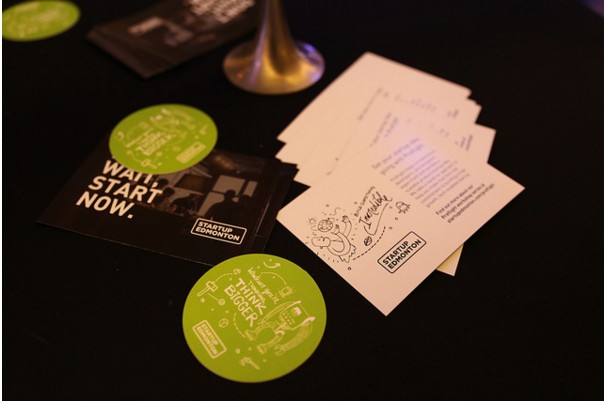When you consider the major players on the technology scene, they all have one thing in common. When they launch products, we all get to hear about it. The likes of Apple put on enormous events, and filter them down into their stores – and the press goes nuts about it. So, when it comes to smaller, new startups, they often think they should follow suit. The big, explosive launch is something that many new entrepreneurs dream about – and often.
However, as a startup owner, you have to ask yourself if a big launch is worthwhile. And, in today’s guide, we’re going to go through ten excellent reasons why you should consider changing your plans. Take a look at these valid points and decide for yourself.
You aren’t a big brand
First of all, the likes of Apple are market leaders, and whenever they do anything, it’s big news. No matter how innovative your startup is, you don’t have a hope in hell of enjoying similar success with your launch event. In the vast majority of cases, a slower, more considered launch will do you far more favors than a disservice.
It’s expensive
As a startup, all you money should be invested in making your product, and selling it. Is a big launch event the most cost-effective way of doing that? It’s doubtful. The money you spend on a glitzy and glamorous launch party will be far better spent in other areas. Don’t underestimate the costs. You have to hire a venue, spend money on attractions and decor, and think about food and drink. There’s also the time drain to consider – can you afford to stop work for several weeks to organize a successful event?
You won’t waste time and money on training
Big events don’t just cost money on impressive signage, entertainment, food or drink. They also cost you regarding people. Your employees will need the training to step up and be counted on your big day, and it will all cost you in time and money.
It stops you from earning
If your product is ready for launch, get it out there. Making a few sales is far more important than planning for the enormous amount of sales you may or may not achieve in the future after a launch event. Those sales are real, and they are your first steps towards making a viable business. Some of the strategies you can use to introduce your product is through flyers or print outs and even floor graphics from a Floor graphics manufacturer.
Your projections are not real – and they could be wildly inaccurate. If you are looking for investment or other financial backing, sales will count for more than your estimates of global domination.
You get to make adjustments
It’s unlikely your product will be pitch-perfect straight out of the box. A softer launch will allow you to find some early adopters, and iron out any kinks before it hits the mainstream markets. You will get better customer feedback going down this route, and you’ll also build up a stronger core following. Think about going to a few trade shows to demonstrate your product, rather than launching it at a big event at your expense. You won’t need much – just a team of good communicators and an eye-catching stand or marquee. Take a look here for some examples – www.dynamicgift.co.nz. The main benefit of going down this route is that you will be on show in front of people who already have an interest in your industry. The feedback you get will be more valuable to you in the long run than launching straight into the mainstream.
You will avoid scaling issues
Scaling is a big problem for startups, and an enormous launch event will exacerbate the issue. Once you launch, it will be difficult for you to pivot, make changes, and deal with the demand. It is a far more sensible option to take things slower with a softer launch so that you can scale your business accordingly. You’ll need to manage your staff numbers, and keep a close eye on your budget. If you go for the big launch, it can leave you high and dry if you can’t meet demand, or don’t get enough sales.
Support for your product means validation
People don’t tend to trust brand new products or companies – and with good reason. The problem with big launch events is that you are going to have to try hard to convince a lot of people that they should buy into your idea. It’s a tough thing to do when you’ve come from nowhere. Softer launches allow you to target specific companies and work with them to make adjustments and give you the support you need. They will also validate your product in the eyes of the average consumer.
You can build better relationships
Startups need to build relationships. Not just with customers, but also with suppliers, the media, and complementary businesses. If you develop your product in secret and then launch at a big event, you just won’t have time to make long-lasting relationships with anyone. The softer approach gives you the time to target the right people for your business needs, and develop suitable partnerships. Doing this will strengthen your brand and give you a good foundation to work from.
You can build momentum without a one-off event
It’s possible to create momentum with a product simply by using social media and inexpensive web tools. And, it’s something you can do alongside your work – making it a much more efficient use of your time. Why waste all your money on a big-bang party when you can achieve better results with a fraction of the cost? You’ll also be able to measure the impact of your actions and gauge interest a lot better when you use these online channels.
You don’t need a big event to succeed
Finally, although some successful companies have big launch events, many others do just fine without them. Think about Facebook and Google as prime examples. Neither of them has ever launched a product with an enormous bang, and both are doing rather well. Sure, companies like Apple tend to steal the news headlines with their launch events. But, that doesn’t mean it is the only way. In the vast majority of cases, a softer launch will do you a lot more favors. Good luck – and let us know your thoughts!









